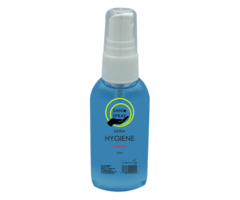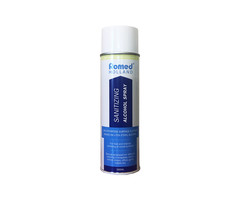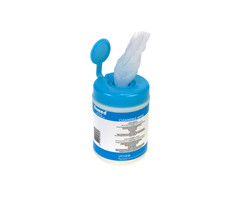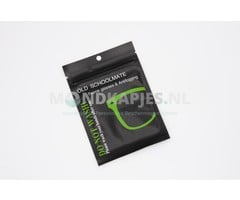Alkoholtupfer, Tücher, Spray und Schaum
The COVID-19 pandemic emphasizes the relevance of hygiene to human health and well-being, as well as its ability to prevent disease. The first line of defense against COVID-19 and other viral illnesses is good hygiene, which includes handwashing with clean water. What responsibility do businesses have in contributing to this access, and how do we scale up current response efforts to establish long-term resilient systems, given their extensive networks of influence?
Personal cleanliness is one of the most effective ways to avoid gastro-intestinal or infectious diseases such as COVID-19, colds, and flu. Handwashing with soap kills bacteria that can make you sick. Maintaining good personal hygiene will also assist you in avoiding the spread of infections to others.
Personal hygiene entails the following:
- Every day, cleanse your body
- After using the restroom, wash your hands with soap
- brush your teeth twice a day.
- When sneezing or coughing, cover your mouth and nose with a tissue (or your sleeve)
- wash your hands after handling pets and other animals.
To help COVID-19 spread more slowly, you should:
- Hands must be washed often with soap and water or alcohol-based hand sanitizers
- Clean and disinfect frequently used surfaces, such as benchtops, desks, and doorknobs
- Clean and disinfect often used objects, such as mobile phones, keys, wallets, and work passes
- By opening windows or altering the air conditioning, you can get more fresh air
Why is personal hygiene important?
It is critical to maintaining good hygiene to avoid contracting or transmitting germs and infectious diseases to yourself and your children. Germs that cause many diseases can be spread through contacting other people, picking up feces (poo), handling contaminated food, or coming into contact with unclean surfaces or things.
Conditions that you can develop if you have poor personal hygiene include:
- COVID-19 and other infectious diseases
- diarrhea, especially gastroenteritis
- respiratory infections, including colds and flu
- staph infections
- worm-related conditions, such as threadworms
- scabies
- trachoma, an eye infection that can lead to blindness
- tinea or athlete’s foot
- tooth decay
5 Ways to Help Prevent Spread of Coronavirus
Here are some pointers on how to stay healthy by maintaining proper personal hygiene:
Hands and body should be washed frequently
While it's important to wash your hands after using the restroom, don't stop there. Throughout the day, especially before meals, wash your hands regularly. You should wash for at least 10-20 seconds. More information on effective handwashing practices can be found at the CDC. The same is true for your body: to prevent disease-causing bacteria from spreading, you should bathe at least once a day.
Take care with what you touch
Hands should not be used to hold communal surfaces such as door handles, petrol pumps, supermarket carts, elevator buttons, and so on. When feasible, use your closed fist or hip to open doors. This is especially crucial when opening doors that have been used by a large number of people, such as those in a bathroom or a commercial establishment.
In public places, use your knuckle to touch light switches and elevator buttons. Hold the fuel dispenser with a paper towel or disposable glove at the gas station.
Always have hand sanitizer on hand
At home and in your car, have a bottle of hand sanitizer that has more than 60% alcohol. After touching any public object, use the sanitizer. Additionally, whenever disinfection wipes are available in stores, use them. Wipe the supermarket cart's handle as well as the child seat.
Your clothes should be washed
Germs, like our bodies, tend to attach to our clothing. Wearing soiled clothes that have been sitting on your bedroom floor is not a good idea. The clothes you put on first thing in the morning should be clean and devoid of bacteria brought on by sweat and other factors.
If you're sick, be considerate of others
Stay home from work or school if you're sick. Avoid making eye contact with other people. Don't let anyone use your utensils or glasses. Clean up your cough or sneeze right away with a tissue or sleeve.
Personal cleanliness has advantages that go beyond having a pleasing social presence. Maintaining good hygiene may keep you and those around you healthy and happy. Remember to follow these guidelines when your body is most vulnerable, such as when traveling or visiting a location where you will be surrounded by a large number of people.
Even though it may appear absurd and difficult to handle everything on your plate, several quick and handy solutions can assist you and your family in maintaining the necessary cleanliness in the continuing pandemic.
Hygiene Essentials in COVID-19
Being able to hygienically wipe your hands at any time during the day protects you and others against the transmission of germs. Here are some critical goods to keep in your hygiene kit so you're prepared at home or on the go, as part of Nobraa's objective to educate improved hygiene habits to people of all ages in the ongoing COVID-19 pandemic.
Hygienic Foam
Your hands will feel rejuvenated and nourished after using this thick, rich foam. Efficacious, killing 99.999 percent of common pathogens in under 15 seconds. Between hand washings, use as needed to assist minimize germ transmission. It evaporates fast and leaves no sticky residue behind.
Alcohol-free, triclosan-free, dye-free, and fragrance-free are all features of this product. This antibacterial handwash is intended for use in places where food is prepared and served. Years of research, customer feedback, and product engineering went into creating sanitizing hygiene foam. Even when traveling, the hygiene foam is used to clean hands gently and hygienically. Even in crucial environments, such as institutional institutions with rigorous cleaning standards, extra hand hygiene is required. For example, after hand contact with door handles in hotels, nurseries, schools, and care facilities.
Dry and cracked hands might result from constantly sanitizing your hands after coming into contact with regularly handled objects. Chapped hands are not only painful, but the cracks can also harbor germs. Keep an antibacterial hygiene foam in your hygiene pack to protect your hands from pathogens while also healing chapped skin. It's critical to not just clean but also care for your hands.
Hygiene Spray
Hygienic cleaning sprays are biological solutions designed to kill microorganisms on still surfaces, such as bacteria and germs. They're commonly used to eradicate bacteria and stains in hospitals, dental offices, kitchens, and restrooms. Some sprays have multiple uses, such as hand sanitization and soft surface cleaning.
Features of a Good Sanitizing Alcohol Spray:
- Sanitize the environment and exteriors
- Corrosive-free
- Skin-friendly for both humans and animals
- Environmentally friendly
- There are no stains, damages, or odors left behind
- When used, it does not cause a harsh chemical reaction. It is effective and beneficial
- At a modest price, you can get it
Because the disinfectant spray contains chemical components, it must stay moist on the surface for 30 seconds to five minutes to kill bacteria promptly. It's important to read and follow the instructions while applying the product, and only rewet when necessary.
Coronaviruses and other respiratory viruses are spread through droplets spat forth when an infected person sneezes, coughs, or just talks. Coronavirus can also be transferred by people who don't have any signs of the sickness.
Those droplets can either land on surfaces directly or are passed to surfaces such as doorknobs if handled by an infected individual, some of whom show no symptoms.
That implies they're more likely to be discovered on surfaces that get a lot of use, such as handrails and doorknobs, rather than on things like pavements and park benches.
Although transmission from person to person poses a much greater risk than transmission via surfaces, the CDC still advises cleaning and disinfecting frequently touched surfaces in our homes at least once daily to be safe if people touching them have had contact with the outside world or people outside their social bubble, because SARS-Cov-2 is capable of living on surfaces like cardboard for up to 24 hours.
Cleansing Wipes
When you don't have the necessary equipment, maintaining hygiene can be a difficult chore. When you have surface disinfection wipes on hand, the task gets a lot easier. These wipes, like conventional face wipes or baby wipes, are designed to clean several surfaces while also removing a variety of bacteria to some extent.
Disinfecting wipes are widely used in the food industry and at home. Because of their ease of use and consistent performance, their use in hospitals and healthcare facilities for decontamination of medical devices and surfaces is constantly expanding.
Disinfecting wipes include a chemical pesticide that kills germs, therefore you shouldn't use them on your skin. You should also avoid using them on food (for example, don't use one to clean an apple before eating it). Don't be alarmed if you hear the word "pesticide." It's safe to use disinfecting wipes as directed as long as they're registered with the Environmental Protection Agency (EPA).
These wipes can be used to sanitize both hands and surfaces. The recipe is mild on the skin while still being safe to use on a variety of surfaces, including wood, granite, and stainless steel. It's also perfect for wiping down appliances, bathroom fixtures, and high-touch surfaces like doorknobs and light switches around the house or office. The wipes can also be used on small electrical devices such as your phone, computer screen, and tablet. This box contains 80 resealable disposable sanitizing wipes.
Users don't have to worry about storing and diluting concentrated chemicals because wipes are designed to be diluted to the right concentration of disinfecting solution. Wipes are simple to have on hand, which means they're always close at hand in the event of a spill or the need for speedy disinfection.
Wipes are produced from a specifically designed fabric that absorbs and releases the formula efficiently when in use. They're easy to use, and unlike concentrated disinfectants, they don't require any particular training or equipment.
Alcohol Swabs
Alcohol swabs are cotton pads that contain 70% isopropanol and are individually packaged. To keep them sterile and prevent drying, they are carefully packed in an aluminum paper bag. Before injecting, use an alcohol swab to clean the skin to prevent microorganisms from being injected into the tissues and treating illnesses.
Alcohol is an excellent disinfectant, eliminating 47-91 percent of bacteria on the skin. Alcohol swabs are therefore commonly seen in hospitals, clinics, and first-aid kits. They are typically used to clean the skin before injecting or taking blood. Using cotton swabs to clean the skin helps to prevent bacteria from entering the body and treating diseases. Alcohol swabs are only good for one user and cannot be shared. Alcohol swab has various purposes besides being used before injections.
Sanitizing is Important Than Ever
In medical settings, cleaning and disinfecting have long been criticized for the protection of patients and personnel. However, in the aftermath of COVID-19, they have become critical for the safety of all residents and employees.
Bleach (sodium hypochlorite) products usually have the shortest contact time. Because these materials are frequently irritants, cleaners should wear gloves and handle them appropriately to avoid skin discomfort. They should also keep bleach-based chemicals separate from acid-based products to avoid them combining and creating harmful fumes.
To be effective, alcohol-based cleaning products derived from either ethyl or isopropyl alcohol must contain at least 65 percent alcohol. To boost their efficiency, these products frequently include a second ingredient, such as hydrogen peroxide. They're also flammable, so cleaners should exercise caution when working with them.
The disinfection products described above can be used on a variety of surfaces, including sinks, counters, office equipment, and any other surface that comes into touch with dirt, grease, or bacteria.
Here are some more ideas for where to use these products:
- Bacteria thrive in high-touch places like keyboards, light switches, and phones. To avoid the spread of germs and infection, it's critical to clean these areas regularly, especially during cold and flu season. Sanitizing wipes make it simple to sanitize these bacteria hotspots regularly.
- Sanitizing wipes are ideal for use in bathrooms since they limit the risk of cross-contamination and are a cost-effective alternative to standard spray and wipe cleaning.
- Disinfectant and general-purpose wipes can be used to clean and maintain places such as patient rooms, waiting rooms, elevators, and handrails in hospitals.
- Sanitizing wipes can be used on surfaces that come into touch with food, such as prep stations and dining tables, in food operations. Sanitizing wipes remove the need to clean filthy cloths used for typical spray and wipe cleaning, preventing cross-contamination.
Hygiene is a method for people to maintain or improve their health. Hygiene is achieved by keeping themselves and their surroundings clean, cleaning and disinfecting surfaces, hands, units, surroundings, and personal objects as needed to break the chain of infection. Other hygiene precautions include keeping a safe distance from sick persons.
Order Sanitizing Wipes, Foam & Spray at Nobraa.com
When it comes to sanitizers, you should try to locate products that are both effective and neutral. Many individuals suffer from allergies, and alcohol-based items that contain improper ingredients can irritate a customer's allergies, causing them to stop buying your products. If they believe your products are bothering their allergies, they may not buy them again.
At Nobraa, we source the best, medically approved sanitizing hygiene products from the top manufacturers and export them around the world at the best wholesale price. If you are looking for a bulk purchase of top-grade alcohol-based sanitizing products like foam, wipes, and spray then contact us today.







